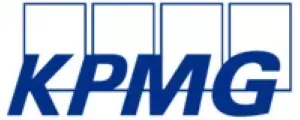The characteristics and benefits of blockchain-based KYC utility and how it can address some of the challenges for financial institutions.
Know Your Customer (KYC) processes provide the backbone of financial institutions' anti-money laundering efforts and help to detect and prevent criminal behaviors the world over. Despite the importance, KYC at many financial institutions is inefficient with tedious processes, duplication of effort and risk of error, which is costly and could negatively impact customer experience.
With the convergence of operational, regulatory, cost and customer experience challenges, it is clear that a change in KYC is needed. Technology may be the answer - but is blockchain the right solution?
Benefits of a blockchain KYC utility
The immutability and transparency of blockchain provides a streamlined way for financial institutions to gain swift and secure access to clean and up-to-date customer data. This results in greater operational efficiency, increased trust between institutions and reduction of labor-intensive data gathering, processing time and costs.
For regulators, the use of blockchain provides a single source of customer data for better understanding and visibility of customer activity across financial intitutions. From a customer standpoint, an institutions use of a blockchain-enabled KYC utility could reduce onboarding wait times and eliminate the need to repeatedly provide the same information to their financial services providers.
Proof-of-concept: Blockchain KYC utility in action
KPMG in Singapore and Bluzelle Networks worked with a consortium of three banks in Singapore - HSBC, OCBC, and Mitsubishi UFJ Financial Group, and the Singaporean regulator Infocomm Media Development Authority to develop a proof-of-concept (POC) KYC utility on a blockchain platform. The prototype successfully passed the Monetary Authority of Singapore's test scenarios. In addition to stability, efficiency and security, the platform could result in estimated cost savings of 25-50 percent by reducing duplication and providing a clear audit trail.
Is a blockchain KYC utility the answer?
While a blockchain-based utility can help banks reduce the burden of time and cost associated with gathering customer information, we believe it is critical banks still perform due diligence on customer information obtained from the platform. Care and attention must be given to issues such as privacy regulations and customer permissions.
Although blockchain can provide significant benefits, it is important to note that there is no one solution that will meet all needs, nor would it solve all KYC issues today.
A blockchain-enabled KYC utility could be created at one of three different levels: within a large financial conglomerate, nationally, and internationally. Furthermore, other areas must be further investigated to see wider release, such as KYC data quality and requirements, privacy regulations, customer permissions, due diligence, and market competition.
Nonetheless, when used in combination with other technologies, a blockchain KYC utility demonstrates strong potential to help financial institutions reduce the time and cost associated with KYC processes, while providing greater visibility to regulators and better customer experience.
Contact us or your local KPMG advisor if you would like to know whether a blockchain-powered KYC utility is a viable solution for your organization and how we can help you seize its full potential.
Could blockchain be the foundation of a viable KYC utility?
pdf Download pdf (749.7 KB)
The content of this article is intended to provide a general guide to the subject matter. Specialist advice should be sought about your specific circumstances.

